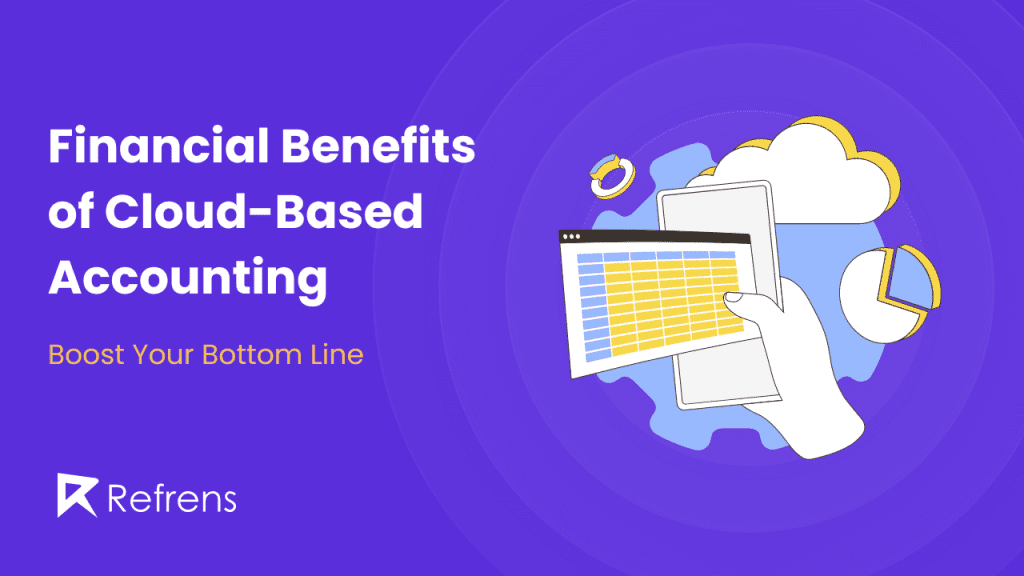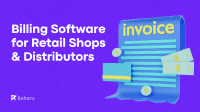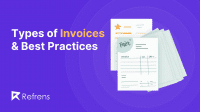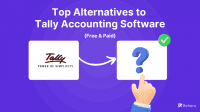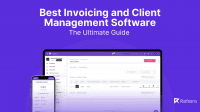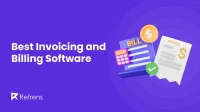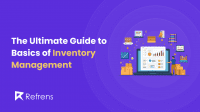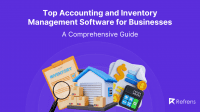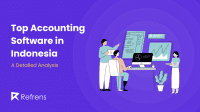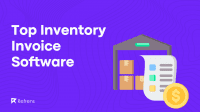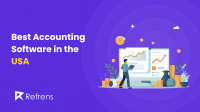Cloud-based accounting has revolutionized how businesses manage their finances. For small and medium-sized businesses (SMBs), startups, consultants, freelancers, and professional services, having an efficient accounting system is crucial.
Cloud-based accounting solutions offer numerous financial benefits that can significantly impact a company’s bottom line. This article explores these advantages, providing a clear picture of why adopting cloud-based accounting is a smart financial decision.
Lower Initial Setup Costs
One of the most immediate benefits of cloud-based accounting is the lower initial setup costs. Traditional accounting systems often require expensive hardware and software purchases. In contrast, cloud-based solutions eliminate these hefty upfront investments, thereby achieving significant cost reduction and maximizing ROI. Businesses no longer need to worry about purchasing servers or specialized accounting software, which can be a significant financial relief.
Additionally, ongoing IT maintenance and upgrade expenses are drastically reduced. With cloud-based accounting, updates and maintenance are handled by the service provider, freeing businesses from the costs and hassles of managing these tasks in-house.
Pay-As-You-Go Pricing Models
Cloud-based accounting solutions typically offer subscription-based services that can be tailored to the size and needs of any business. This pay-as-you-go model provides flexibility, allowing businesses to scale their services up or down as their requirements change.
This adaptability ensures that companies only pay for what they need, making financial management more predictable and manageable. According to the State of the Cloud Report 2023, organizations can save an average of 25% by adopting cloud-based solutions over traditional on-premise systems.
Reduced Administrative Costs
Top cloud-based accounting systems offer significant savings in administrative costs by automating routine tasks. Tasks like invoicing, payroll, and expense tracking are handled automatically, which reduces the time and effort needed for these activities.
By streamlining these processes, businesses can save both time and money, allowing staff to focus on more strategic tasks and improving overall efficiency. This ultimately leads to a more productive and cost-effective accounting system.
Real-Time Financial Data Access
Cloud-based accounting systems provide immediate access to financial data from any location and at any time. This real-time access is crucial for making informed business decisions. With the latest financial information readily available, business owners and managers can quickly evaluate their financial status and react to changes as they occur.
This timely access to data ensures better decision-making and allows businesses to be more agile and responsive. Additionally, it helps in identifying potential issues early, enabling prompt corrective actions and improved overall financial management.
Enhanced Cash Flow Management
Effective cash flow management is crucial for the financial health of any business. Cloud-based accounting solutions provide automated invoicing and better tracking of receivables and payables, ensuring that businesses have a clear picture of their cash flow status.
Automated reminders and notifications for due invoices help ensure timely payments, which can significantly improve cash flow and reduce the risk of late payments or defaults. Xero recently found that 87% of companies using cloud accounting reported an acceleration in their business growth. This shift towards cloud-based accounting offers clear advantages for businesses of all sizes.
Streamlined Tax Compliance
Managing tax compliance can be both complicated and time-consuming for businesses. Cloud-based accounting systems make this process easier by automating calculations for GST and other taxes. These systems also simplify the creation of tax reports and e-way bills, helping businesses stay compliant with tax regulations without much effort.
Automation significantly reduces the risk of errors and the penalties that come with them. This streamlined approach not only saves time but also provides business owners with peace of mind, knowing their tax obligations are accurately managed.
Robust Data Protection
Protecting financial data is crucial for any business. Cloud-based accounting solutions use advanced encryption and security protocols to keep sensitive information safe. A thorough security audit is also conducted regularly to identify and fix any vulnerabilities in the system. These proactive methods ensure that potential security threats are addressed before they can cause harm.
Regular backups are another important feature, ensuring that data is not lost and can be quickly restored if there is a breach or hardware failure. This strong data protection helps businesses maintain trust with their clients and partners, providing peace of mind and ensuring continuity in their operations.
Regulatory Compliance
Cloud-based accounting systems are designed to ensure compliance with financial regulations and standards. These accounting software programs are automatically updated to reflect changes in tax laws and financial regulations. This means businesses don’t have to manually track and implement these updates, saving time and reducing the risk of errors.
When choosing online accounting software, it’s essential to consider your business’s specific needs and requirements. This includes factors such as the size of your business, the complexity of your financial transactions, and your industry-specific regulations. By selecting the right software, you can streamline your accounting processes, improve accuracy, and ensure compliance with financial regulations.
Some of the most popular software for accounting include QuickBooks, Xero, FreshBooks, Sage Intacct, and NetSuite. These software solutions offer a variety of features and functionalities to meet the needs of businesses of all sizes. By researching and comparing different options, you can find the best software for your business and optimize your accounting processes.
With built-in compliance features, businesses can avoid costly fines and legal issues, providing peace of mind and allowing them to focus on their core operations. This automatic compliance feature is a significant advantage for businesses of all sizes.
Disaster Recovery
In case of a data breach or hardware failure, top cloud-based accounting solutions provide rapid recovery options through Cloud Incident Response mechanisms. These solutions include reliable backup systems that ensure business continuity.
With cloud-based accounting, businesses can quickly recover their data and resume operations with minimal downtime. This capability is vital for maintaining ongoing business activities and safeguarding against data loss.
The quick recovery options offered by cloud-based systems help protect sensitive financial information and ensure that businesses can continue to operate smoothly even during unexpected disruptions.
Multi-User Access
Cloud-based accounting systems enable multiple users to access and work on financial data at the same time. This capability allows team members, accountants, and advisors to collaborate more effectively.
With everyone able to view and update financial information simultaneously, it ensures that all involved parties are on the same page. This feature improves coordination and helps in making better, faster decisions.
Multi-user access streamlines the workflow, reduces communication gaps, and enhances overall efficiency in managing financial tasks.
Mobile Access
Cloud-based accounting solutions offer mobile-friendly interfaces that make managing finances on the go easy. Business owners and employees can access financial data and perform accounting tasks from their smartphones or tablets, which increases flexibility and productivity.
A recent study found that the average time spent on mobile devices has surpassed 5 hours per day across the top 10 markets, highlighting the growing reliance on mobile technology for various tasks. This mobile access ensures that financial management is not confined to the office, allowing for more dynamic and responsive business operations
Integration with Other Business Tools
Cloud-based accounting solutions can easily work together with other business tools like customer relationship management (CRM) systems and inventory management software. This integration brings all these functions into one unified platform, which simplifies managing different parts of the business.
By combining these systems, businesses can avoid the hassle of switching between multiple standalone tools. This streamlined approach helps in reducing errors, saving time, and improving overall efficiency.
With everything connected, it’s easier to track financial data, customer information, and inventory levels in one place, making business operations smoother and more effective.
Conclusion
Cloud-based accounting offers numerous financial benefits that can significantly enhance a business’s operational efficiency and bottom-line growth. From lower initial setup costs and pay-as-you-go pricing models to reduced administrative expenses and enhanced cash flow management, the advantages are clear. Businesses can also benefit from real-time financial data access, streamlined tax compliance, robust data protection, and much more.
By adopting cloud-based accounting solutions, businesses can not only improve their financial management practices but also ensure better compliance, security, and operational resilience. It’s time for businesses to consider making the switch to cloud-based accounting to fully leverage these financial benefits and boost their bottom line.
